Latest News
Relations Between Taliban, Russia Worry Afghans: US Officials
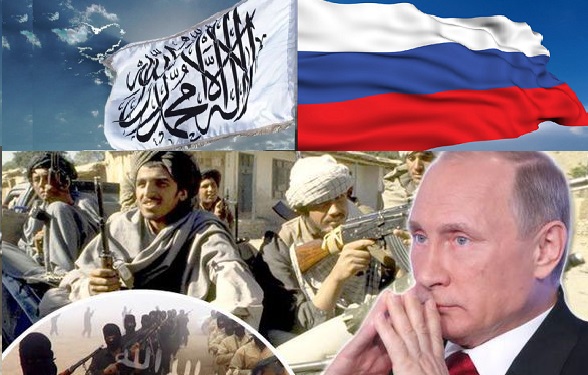
 Afghan and American officials are increasingly worried that any deepening of ties between Russia and Taliban militants fighting to topple the government in Kabul could complicate an already precarious security situation.
Afghan and American officials are increasingly worried that any deepening of ties between Russia and Taliban militants fighting to topple the government in Kabul could complicate an already precarious security situation.
Russian officials have denied they provide aid to the insurgents, who are contesting large swathes of territory and inflicting heavy casualties, and say their limited contacts are aimed at bringing the Taliban to the negotiating table.
Leaders in Kabul say Russian support for the Afghan Taliban appears to be mostly political so far.
But a series of recent meetings they say has taken place in Moscow and Tajikistan has made Afghan intelligence and defense officials nervous about more direct support including weapons or funding.
A senior Afghan security official called Russian support for the Taliban a “dangerous new trend”, an analysis echoed by the top U.S. commander in Afghanistan, General John Nicholson.
He told reporters at a briefing in Washington last week that Russia had joined Iran and Pakistan as countries with a “malign influence” in Afghanistan, and said Moscow was lending legitimacy to the Taliban.
Russian Foreign Ministry spokeswoman Maria Zakharova pushed back at Nicholson’s comments in a briefing in Moscow on Wednesday, calling them naive and inaccurate.
“We have repeatedly said that Russia is not carrying out any secret talks with the Taliban and is not providing it with any kind of support,” she said.
Zakharova said Russia favors a negotiated peace in Afghanistan, which can only happen by cultivating contacts with all players, including the Taliban.
The Russian embassy in Kabul has scheduled a press conference for Thursday to discuss Afghan-Russian relations, amid reports that the Afghan parliament plans to investigate Russia’s ties with the Taliban.
ANOTHER “GREAT GAME”?
Afghanistan has long been the scene of international intrigue and intervention, with the British and Russians jockeying for power during the 19th Century “Great Game,” and the United States helping Pakistan provide weapons and funding to Afghan rebels fighting Soviet forces in the 1980s.
Taliban officials told Reuters that the group has had significant contacts with Moscow since at least 2007, adding that Russian involvement did not extend beyond “moral and political support”.
“We had a common enemy,” said one senior Taliban official. “We needed support to get rid of the United States and its allies in Afghanistan and Russia wanted all foreign troops to leave Afghanistan as quickly as possible.”
Moscow has been critical of the United States and NATO over their handling of the war in Afghanistan, but Russia initially helped provide helicopters for the Afghan military and agreed to a supply route for coalition materials through Russia.
Most of that cooperation has fallen apart as relations between Russia and the West deteriorated in recent years over the conflicts in Ukraine and Syria.
Incoming U.S. president Donald Trump, who takes office in January, has signaled a desire to improve relations with Russia, meaning future U.S. and Russian policies could change.
FOREIGN MEETINGS
In recent months, Taliban representatives have held several meetings with Russian officials, according to both Taliban and Afghan government sources.
Those meetings included a visit to Tajikistan by the Taliban shadow governor of Kunduz province, Mullah Abdul Salam, said Kunduz police chief Qasim Jangalbagh.
Another recent meeting occurred in Moscow itself, according to an official at the presidential palace in Kabul.
Afghan officials did not produce evidence of direct Russian aid, but recent cross-border flights by unidentified helicopters and seizures of brand new “Russian-made” guns had raised concerns that regional actors may be playing a larger role, Jangalbagh said.
“If the Taliban get their hands on anti-aircraft guns provided, for example, by Russia, then it is a game-changer, and forget about peace,” said another senior Afghan security official.
ISLAMIC STATE OR UNITED STATES?
According to Afghan and U.S. officials, Russian representatives have maintained that government security forces, backed by U.S. special forces and air strikes, have not done enough to stem the growth of Islamic State in Afghanistan.
Militants loyal to the radical Middle East-based network have carved out territory along the border with Pakistan, and have found themselves fighting not only Afghan and foreign troops, but also the Taliban, who compete for land, influence, and fighters.
Taliban officials dismissed the idea that their ties to Russia had anything to do with fighting Islamic State.
“In early 2008, when Russia began supporting us, ISIS(Islamic State) didn’t exist anywhere in the world,” the senior Taliban official said. “Their sole purpose was to strengthen us against the U.S. and its allies.”
That was echoed by Taliban spokesman Zabihullah Mujahid, who said “ISIS is not an issue”.
Nicholson said the talk of Islamic State is a smokescreen designed to justify Russian policies.
“Their (Russia’s) narrative goes something like this: that the Taliban are the ones fighting Islamic State, not the Afghan government,” Nicholson said.
“So this public legitimacy that Russia lends to the Taliban is not based on fact, but is used as a way to essentially undermine the Afghan government and the NATO efforts and bolster the belligerents.”
Written by Reuters

Latest News
IEA should respond to Pakistan’s security concerns with concrete actions: Andrabi

Pakistani Foreign Ministry spokesman Tahir Hussain Andrabi says both Pakistan’s Prime Minister Shehbaz Sharif and Sadyr Japarov, the President of Kyrgyzstan, who visited Islamabad on Thursday, expressed their mutual commitment to a peaceful, stable Afghanistan with a sustainable future for the Afghan people.
Speaking in a press conference on Friday, Andrabi stated that both sides agreed that the Islamic Emirate must fulfill its obligations toward the international community and take concrete steps against terrorist groups to address Pakistan’s legitimate security concerns.
This comes while the Islamic Emirate of Afghanistan has repeatedly emphasized that no terrorist groups operate from Afghan territory and that it will not allow anyone to use Afghan soil against any country.
The Islamic Emirate has also stated that Pakistan’s security concerns are an internal issue of that country, and Pakistan itself must take measures to prevent any security incidents.
Latest News
Malaysia’s PM calls peaceful solution to Afghanistan-Pakistan tensions
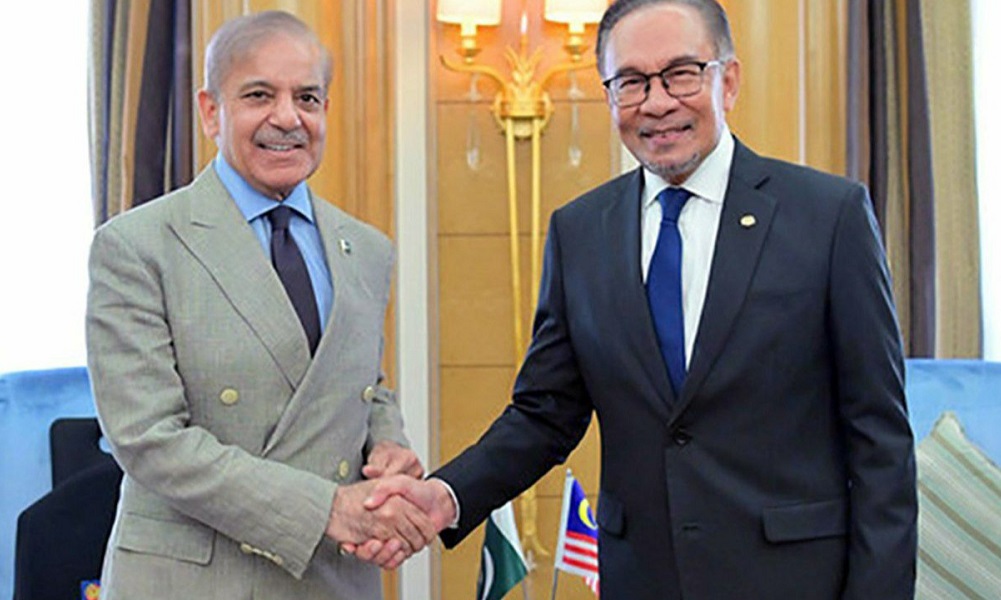
Malaysian Prime Minister Datuk Seri Anwar Ibrahim has voiced deep concern over escalating tensions between the Afghanistan–Pakistan during a telephone conversation with Pakistan’s Prime Minister Shehbaz Sharif.
In a statement posted on Facebook, Anwar said he emphasized Malaysia’s concerns regarding regional stability and urged all parties to pursue a peaceful resolution through dialogue and diplomatic engagement to prevent further escalation.
His remarks follow media reports indicating heightened tensions between Afghanistan and Pakistan after a series of attacks in October.
During the call, the two leaders also exchanged views on several aspects of Malaysia–Pakistan bilateral relations.
Anwar also briefed Sharif on the ongoing flood situation in Malaysia and similar challenges facing neighboring countries, including Indonesia and Thailand.
Latest News
Afghanistan makes major strides in cutting drug trafficking, says Putin
Putin stated that Afghan authorities have “substantially reduced” opium cultivation and are “seriously confronting” drug-related threats from within their borders.

Russian President Vladimir Putin says Afghanistan has taken “active and effective” steps to curb drug trafficking, noting a significant drop in opium production across the country. He made the remarks during an exclusive interview with India Today during his India trip, highlighting what he described as “visible progress” in Afghanistan’s internal security efforts.
Putin stated that Afghan authorities have “substantially reduced” opium cultivation and are “seriously confronting” drug-related threats from within their borders. He added that Afghanistan has also made important advancements in the fight against terrorism.
Responding to a question about why Russia officially recognized the Islamic Emirate, the Russian president said Afghanistan had been engulfed in civil conflict for many years, but the current authorities now hold control over the country. “This is the reality, and it must be acknowledged,” Putin emphasized.
He further noted that maintaining contact with Afghanistan’s leadership is crucial for shaping events inside the country. “If you want influence, you must engage with the people in charge — and that is exactly what we are doing,” he said.
Putin’s remarks come as several regional powers continue to recalibrate their diplomatic strategies toward Afghanistan, focusing on stability, counterterrorism, and economic cooperation.
-

 International Sports4 days ago
International Sports4 days agoStar-studded squads set to ignite DP World ILT20 Season 4
-
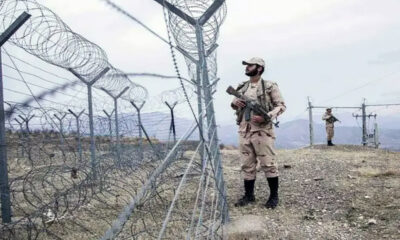
 Latest News4 days ago
Latest News4 days ago10 Afghans killed in Farah border shooting by Iranian forces
-
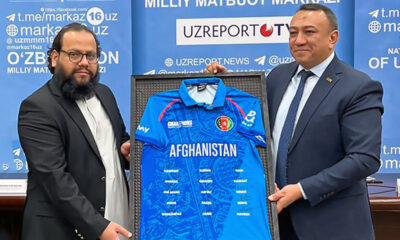
 Sport5 days ago
Sport5 days agoAfghanistan deepens ties with Uzbekistan through new cricket development partnership
-
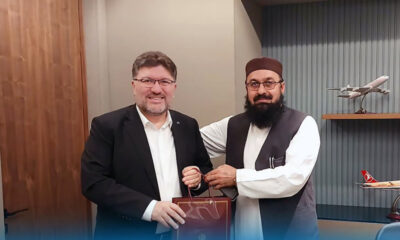
 Business4 days ago
Business4 days agoAriana Airlines deepens cooperation with Turkish Airlines
-
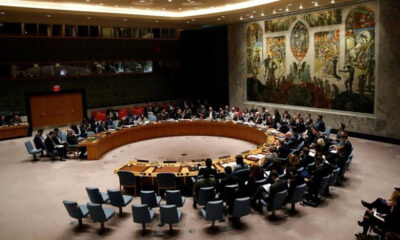
 Latest News4 days ago
Latest News4 days agoUN Security Council to review rising Afghanistan–Pakistan tensions
-

 Sport5 days ago
Sport5 days agoUAE Bulls clinch first Abu Dhabi T10 title with dominant 80-run victory
-

 Latest News4 days ago
Latest News4 days agoChina urges Tajikistan to protect citizens after border attack
-
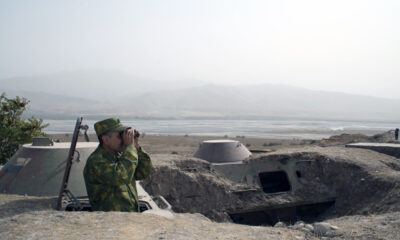
 Latest News3 days ago
Latest News3 days agoSituation along Afghan-Tajik border “not stable,” says Dushanbe















